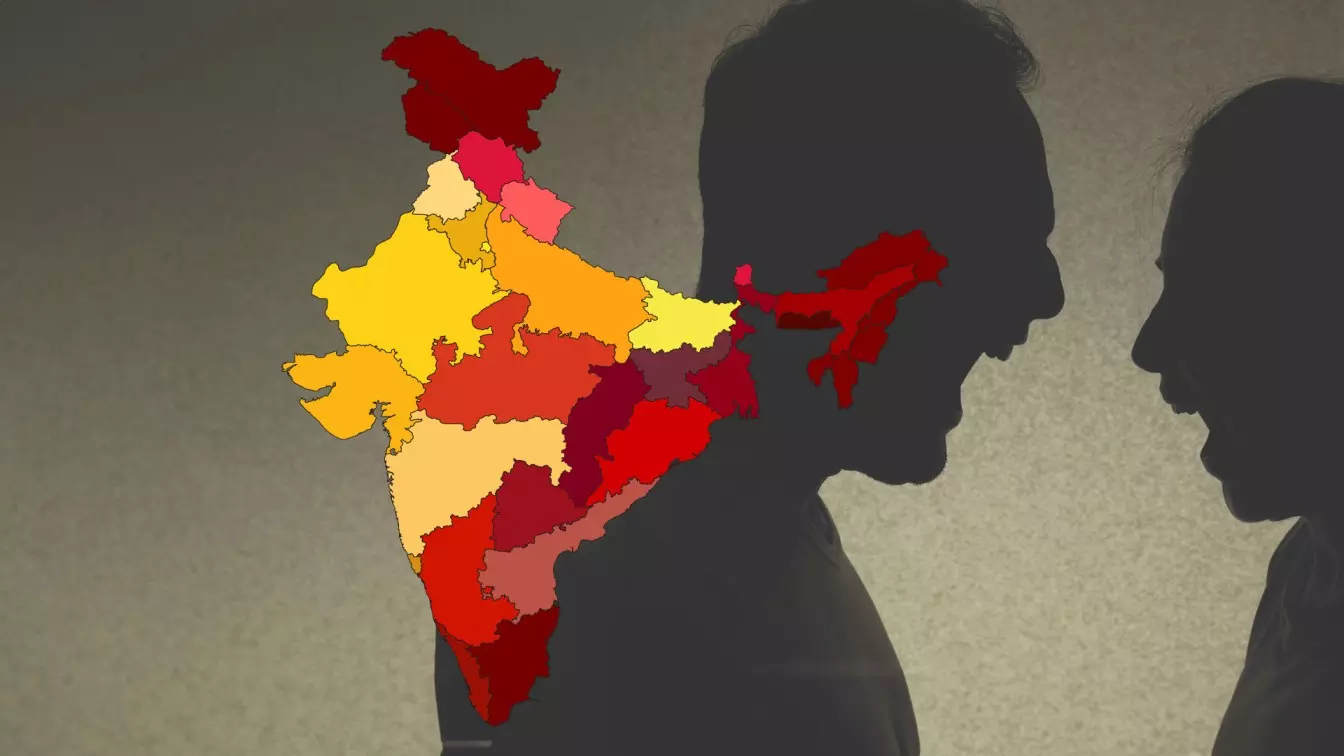
55 pc Indians use cuss words, says survey; Delhi tops list, south least abusive
'Gaali Band Ghar' campaign survey highlights disturbing trend of verbal abuse; 80 pc of Delhi residents using profanities, followed by Punjab, U,P and Bihar

A nationwide survey on abusive language use reveals that 55 per cent of Indians regularly use cuss words, with Delhi emerging as the most abusive state at 80 per cent. The survey, conducted between 2014 and 2025, highlights a disturbing trend of normalised verbal abuse, particularly targeting women, within Indian households.
The nationwide “Gali Index” stands at 55 per cent, meaning over half the country uses abusive language casually. Host Sanket Upadhyay reflected on the seriousness of this finding, calling for introspection and behavioural change.
Gaali Band Ghar campaign
The data was compiled as part of the ‘Gaali Band Ghar’ campaign, launched in 2014 by activist Sunil Jaglan. The initiative aimed to discourage the casual use of profanities, especially gendered slurs directed at one’s mother and sister, in domestic and public spaces. Visualised by Ashish Chaudhary and hosted by the India in Pixels platform, the survey drew responses from 70,000 participants across rural and urban India, including auto drivers, students, sanitation workers, and homemakers.
Also read: How Kanwar Yatra, once a quiet walk of piety, has taken a riotous turn
Survey findings by region
Delhi topped the list with 80 per cent of respondents admitting to abusive language use, followed closely by Punjab (78 per cent), Uttar Pradesh and Bihar (74 per cent each), and Rajasthan (68 per cent). Other notable states include Haryana (62 per cent), Maharashtra (58 per cent), and Gujarat (55 per cent).
These states form a contiguous belt in North and Western India, where abuse has been found to be more culturally ingrained. Surprisingly, Madhya Pradesh (48 per cent) and Chhattisgarh (45 per cent) showed slightly better numbers, while Jammu and Kashmir and Ladakh had among the lowest (15 per cent).
Southern India less abusive
In contrast, Southern Indian states showed relatively restrained behaviour. Telangana reported the lowest abuse rate in the south at 35 per cent, followed by Andhra Pradesh (39 per cent), Kerala (42 per cent), and Tamil Nadu and Karnataka at a shared 44 per cent.
North-eastern states also ranked lowest overall: Sikkim (15 per cent), Assam (18 per cent), Arunachal Pradesh (18 per cent), and Nagaland (16 per cent), among others. These regions reflected a cultural environment less conducive to verbal abuse.
Also read: Is 'Adani' unparliamentary?: Priyanka on word expunged from her LS speech
Women swear too
Challenging common assumptions, the survey found that abusive language is not solely a male habit. An equal number of women reported using expletives, including those directed at mothers and sisters, breaking gender stereotypes around verbal aggression.
"We all use swear words because they have been normalised in our society," said Sanket. "Particularly if you live in Delhi like I do… people just casually throw a lot of cuss words in their conversation."
Voices behind the campaign
Arshis Chaudhary explained how he accessed and cleaned the complete dataset from Professor Sunil Jaglan’s decade-long survey. He then visualised the map that is now gaining public attention.
“I created the map after receiving the full data beyond just the top 10 states shown in newspapers,” said Arshis.
Also read: Ashamed, abused, betrayed, corrupt are now 'unparliamentary' words
Jaglan, a former sarpanch, initiated the campaign after being disturbed by the language used in his village. Over 11 years, he has conducted awareness programmes across 5,000 villages, universities, and schools.
Joining the movement
Sanket also joined the “Bharat Against Abuse” initiative by Swami Oma of Varanasi, which promotes a public pledge to avoid using gendered abuse. He emphasised that abusive language often reflects a breakdown in articulation, not the strength of an argument.
“Should you feel the need to use cuss words in your conversation, then there is something wrong with the point you are making,” he concluded.
The way forward
The findings are a mirror to Indian society, highlighting deep-rooted verbal aggression across states and demographics. Experts and campaigners hope these insights will encourage greater awareness, sensitivity, and reform.
Also read: Unparliamentary words? Shashi Tharoor's solution is 'Algospeak'
“Let’s take this pledge together to make India gali-free.”
The content above has been transcribed from video using a fine-tuned AI model. To ensure accuracy, quality, and editorial integrity, we employ a Human-In-The-Loop (HITL) process. While AI assists in creating the initial draft, our experienced editorial team carefully reviews, edits, and refines the content before publication. At The Federal, we combine the efficiency of AI with the expertise of human editors to deliver reliable and insightful journalism.

